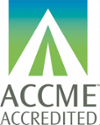
The 4th Annual University of Utah Translational Hypertension Symposium & Early-Stage Investigator Workshop
Zoom Link for 4th Annual University of Utah Translational Hypertension Symposium, October 8th, 2020 from 9am to 11 am (MT):
https://utah-health.zoom.us/j/91382784388?pwd=VDdHN29KOXBZTytzMHp4WnRwRm9lZz09
Passcode: 835935
We hope everyone is staying well during these challenging times.
We would like to take this opportunity to remind everyone that the 4th Annual University of Utah Translational Hypertension Symposium and Early-Stage Investigator Workshop will continue as scheduled for October 8th and 9th, 2020. We have determined that this year it will be an open virtual experience.
Regards,
Organizing Committee
About the Symposium and Early-Stage Investigator Workshop
High blood pressure affects more than a billion people worldwide and remains a leading modifiable cause of heart disease and health disparities. The Coronavirus Disease 2019 (COVID-19) is likely the public health crisis of our lifetimes and has killed > 130,000 adults in the US alone as of July 14, 2020 as is altering the management of hypertension.
While everyone is impacted by COVID-19, not all are impacted equally. COVID-19 has laid bare the racial divide in the health of our nation. Distinctively, this crisis has highlighted the breadth of social and health inequities present in our country.
Impoverished communities and communities of color are being especially devastated, with disproportionate rates of infection, mortality, and unemployment. In order to mitigate the immediate morbidity and mortality of COVID-19, drastic efforts to reduce elective and non-emergent health care services were undertaken. For example, out-patient visits for routine chronic conditions, such as hypertension have been suspended, with different approaches to management, including telehealthcare.
These efforts may have unintended consequences for the management of hypertension, which disproportionately affects impoverished communities and communities of color.
To help discuss these issues, we have reformatted the symposium into a virtual 90-minute panel discussion moderated by Dr. Daichi Shimbo focused on the intersection of the disparities in hypertension treatment and control laid bare by COVID-19 and the role of home blood pressure monitoring and telehealth during and after the COVID-19 pandemic. The discussion will also be informed by an ongoing survey, the “COVID-19 Impact on Hypertension Care and Research Survey”( click the green bottom button). We plan to record and live stream the event.
The virtual ESI Workshop takes place the day after the virtual symposium and is a half day, intensive mentoring session. The Workshop objectives are to provide ESI networking opportunities, insights, and mentorship from leaders in the field of clinical and translational hypertension research. The Workshop will include featured panels of faculty members from across the country, with interactive Q&A’s covering topics including (1) Career Development, Grant Submissions, and Work-Life Balance in Hypertension Research; (2) Critical Research Gaps in Hypertension Research; and (3) the Effects of COVID-19 on Hypertension Research and Early Stage Investigator Career Advancement.
The 2020 Symposium addresses these topics and more, with confirmed panelists:
 |
Keynote adress Keith C. Ferdinand, MD, FACC, FAHA, FASH, FNLA, from Tulane University. |
 |
Edmund Anstey, MD, MPH, from Columbia University. |
 |
Valy Fontil, MD, MAS, MPH, from University of California, San Francisco. |
 |
Beverly B. Green, MD, MPH, from Kaiser Permanente Washington Research Institute. |
 |
Karen Margolis, MD, MPH, from HealthPartners Institute and University of Minnesota. |
 |
Michael K. Rakotz, MD, from Northwestern University. |
 |
Monika M. Safford MD, from Cornell University. |
Moderated by:
 |
Daichi Shimbo MD, from Columbia University. |

Accreditation: The University Of Utah School Of Medicine is accredited by the Accreditation Council for Continuing Medical Education (ACCME) to provide continuing medical education for physicians.
AMA Credit: The University of Utah School of Medicine designates this live activity for a maximum of 2.00 AMA PRA Category 1 Credit(s)™. Physicians should claim only the credit commensurate with the extent of their participation in the activity.
All attendees are encouraged to use the CME system to claim their attendance. Physicians will be awarded AMA PRA Category 1 credits TM; all other professions will be awarded attendance at a CME event credit that they may use for their re-credentialing purposes. Nurses seeking contact hours must claim through the CME system. All users will be able to print or save certificates. For questions regarding the CME system, please contact the UUCME Office. For questions regarding re-credentialing process or requirements, please contact your re-credentialing organization.
Nondiscrimination and Disability Accommodation Statement: The University of Utah does not exclude, deny benefits to or otherwise discriminate against any person on the basis of race, color, national origin, sex, disability, age, veteran’s status, religion, gender identity/expression, genetic information, or sexual orientation in admission to or participation in its programs and activities. Reasonable accommodations will be provided to qualified individuals with disabilities upon request, with reasonable notice. Requests for accommodations or inquiries or complaints about University nondiscrimination and disability/access policies may be directed to the Director, OEO/AA, Title IX/Section 504/ADA Coordinator, 201 S President’s Circle, RM 135, Salt Lake City, UT 84112, 801-581-8365 (Voice/TTY), 801-585-5746 (Fax).